Guernsey and Jersey mark 80 years since harbour bombings
- Published
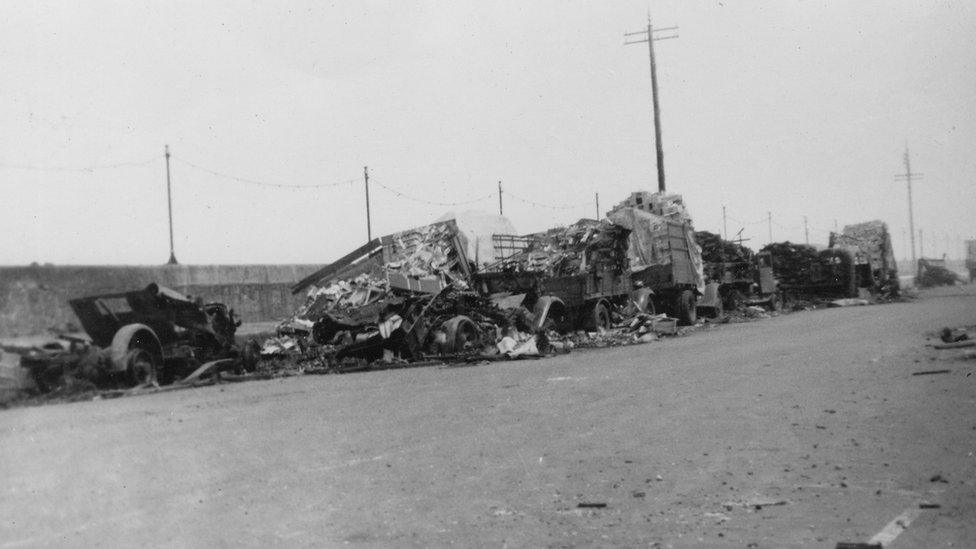
Tomato trucks in St Peter Port, Guernsey, were mistakenly identified for military vehicles by the Germans
The 80th anniversary of the bombings of Jersey and Guernsey during World War Two has been marked with services on Sunday.
Forty-three people were killed and 44 injured when German planes attacked the two islands on 28 June 1940.
The air raid on St Peter Port and St Helier heralded the beginning of the German Occupation of the Channel Islands which lasted for five years.
The memorials were attended by some of those who witnessed the bombings.
Wreaths were laid at St Peter Port in Guernsey and La Rocque in Jersey at about 18:50 BST to coincide with the time of the attack.
The Constable of St Peter Port Dennis Le Moignan said: "It is always important to remember and honour those who suffered and died in past conflicts. We remind ourselves of their lives lost, whether in combat or by an indirect act of war.
"We need to inform the new generations of the dreadful consequences war has, in the hope they will take notice and work toward continued peace."
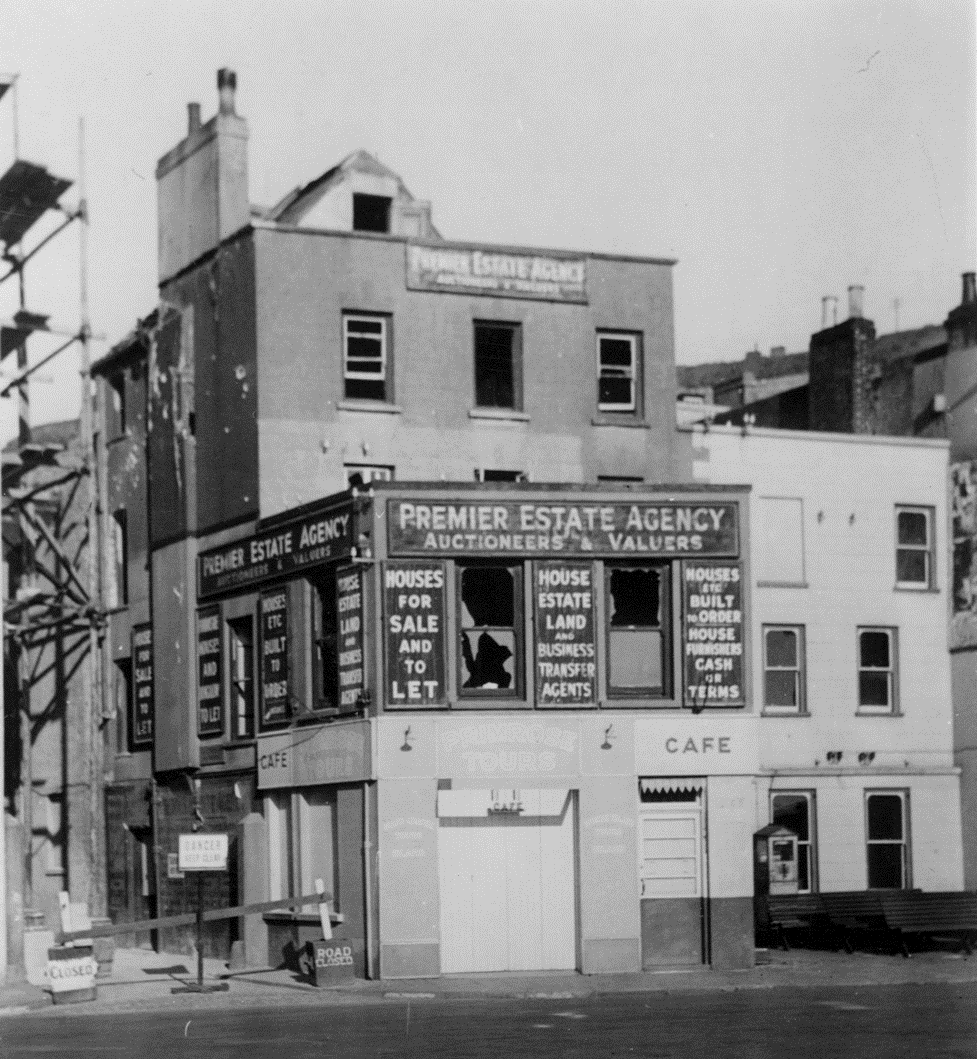
The strength of the bombs blew out windows of buildings, including this estate agents near Caledonia Place in St Helier, Jersey
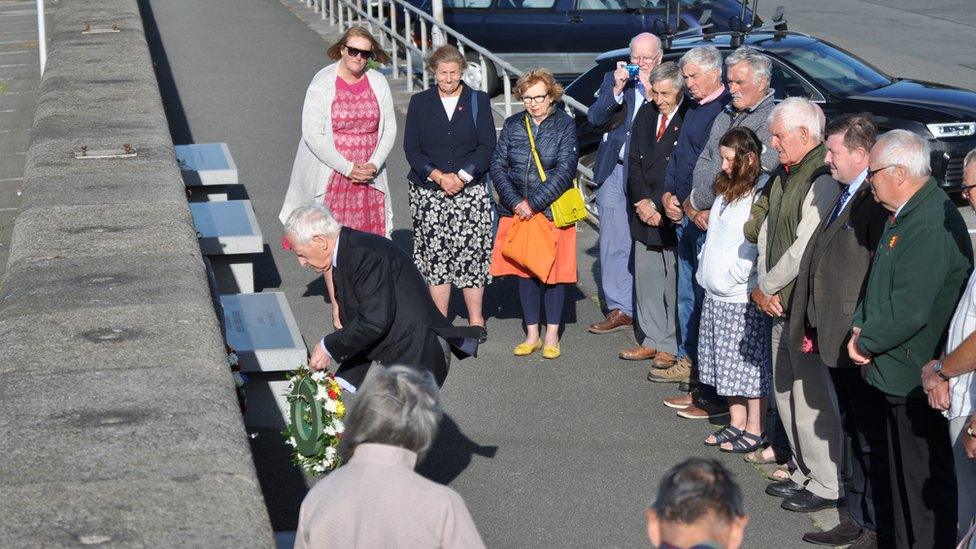
The Guernsey memorial remembered 34 civilians who were killed during the air raid
Thirty-four people were killed in the hour-long attack on Guernsey, and another 33 were injured.
The planes moved on to target the St Helier and La Rocque areas of Jersey, killing a further nine people and leaving 11 injured.
Graham Bree, who was just a child when the island was attacked, said: "We were having supper when we heard the noise, the disturbance, which was the planes coming over La Rocque and we went into the back garden at home.
"There were the German planes, which appeared very, very low and very menacing, approaching the house and heading towards the harbour in St Helier".
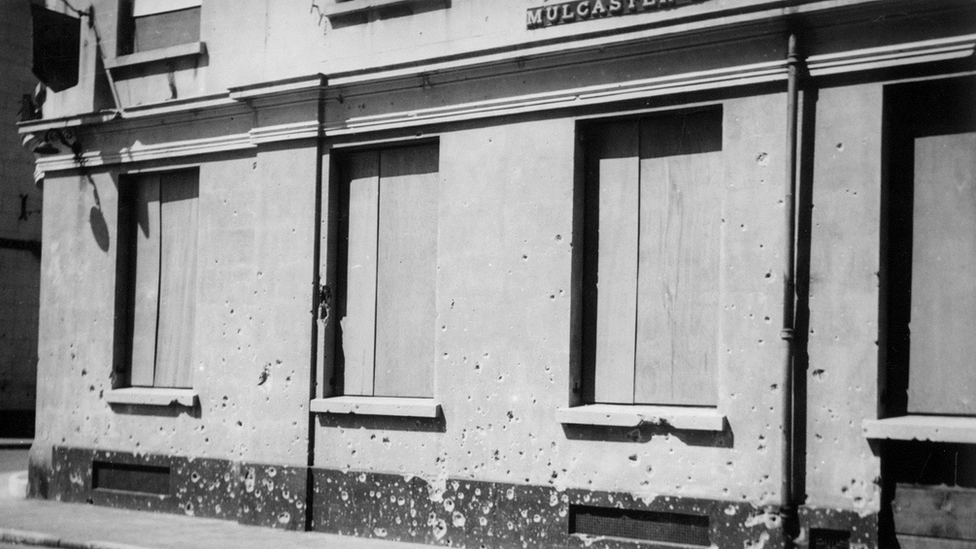
Mulcaster Street in Jersey was one of the areas hit heaviest by the attack
The British government decided to leave the Channel Islands undefended just under two weeks before the bombings.
This demilitarisation was not communicated to German forces.
Local historian Simon Hamon described the damage as "catastrophic".
"I think people were a little shook up and realised actually they do know we're here, and the fact that they're bombing us means they're going to come.
"It was a massive period of uncertainty, they just did not know how the Occupation was going to look, what route it was going to take."
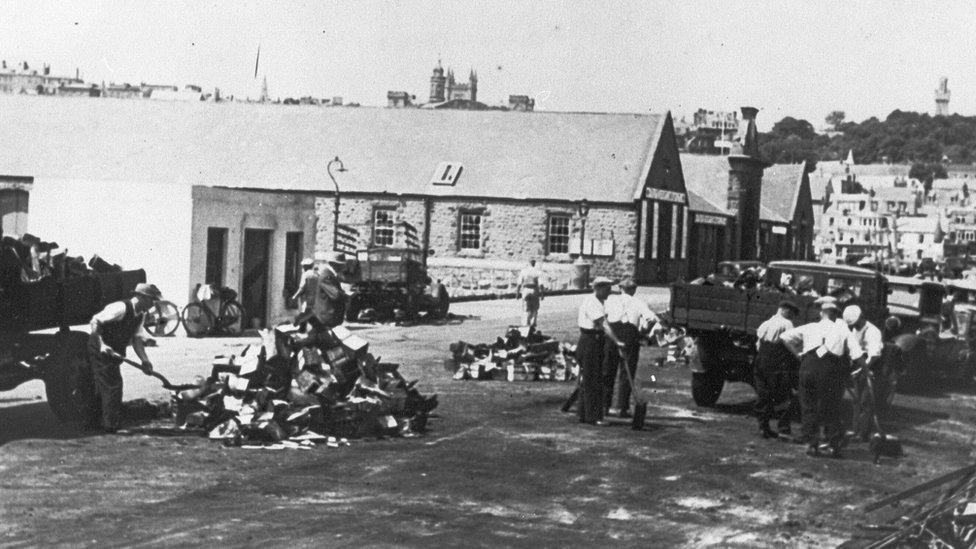
A clear-up operation in Guernsey was under way by 1 July 1940
- Published8 May 2020
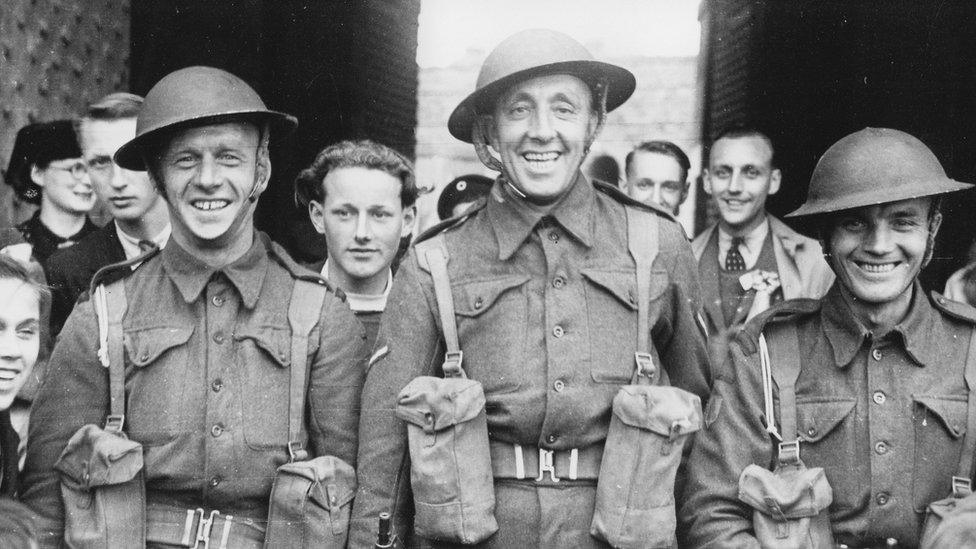
- Published23 June 2010
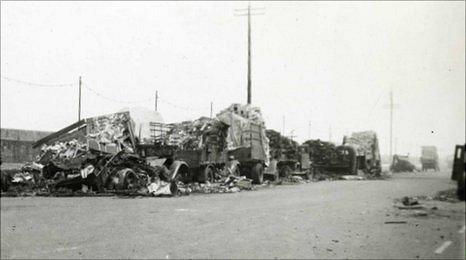
- Published28 June 2010